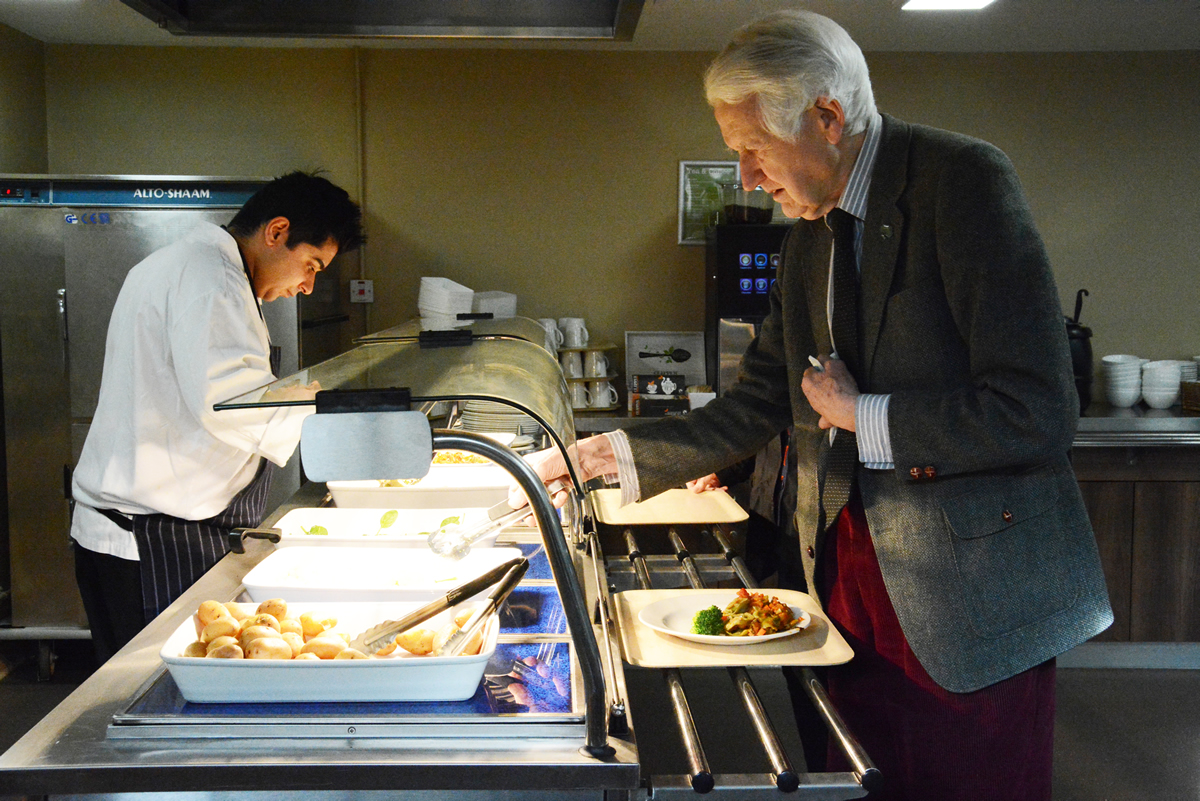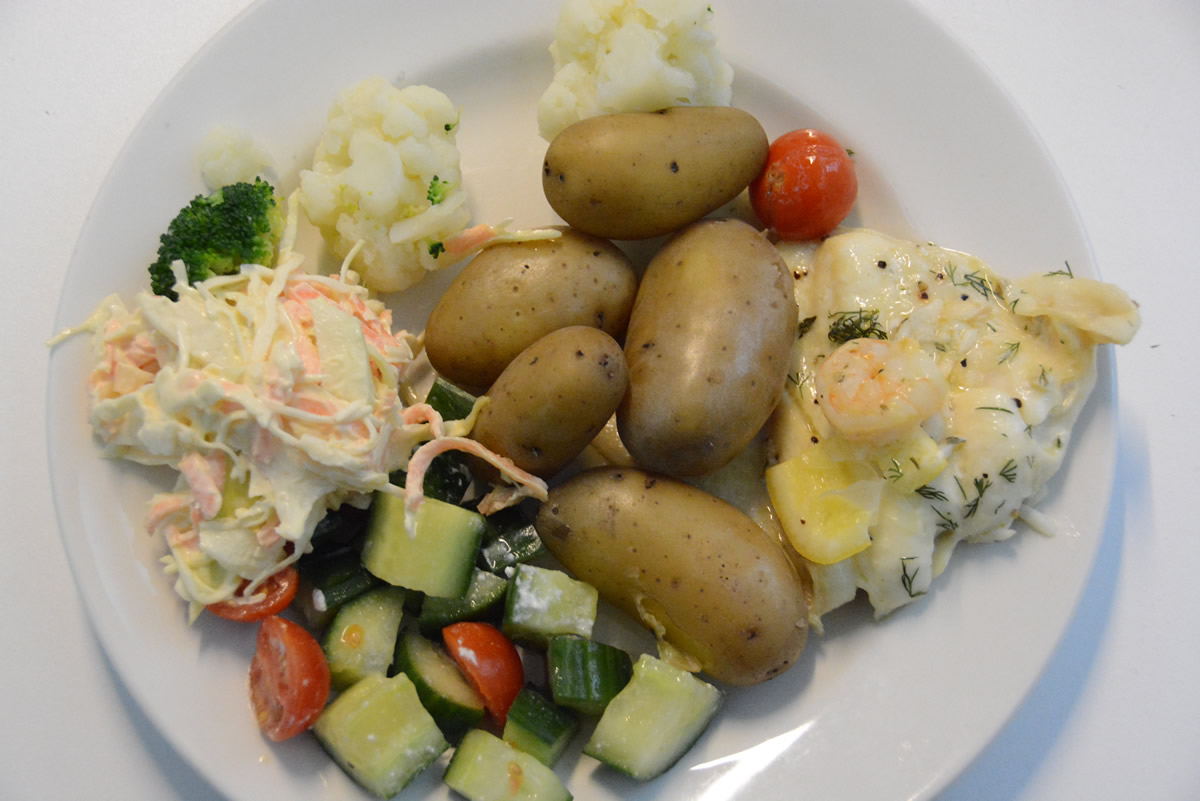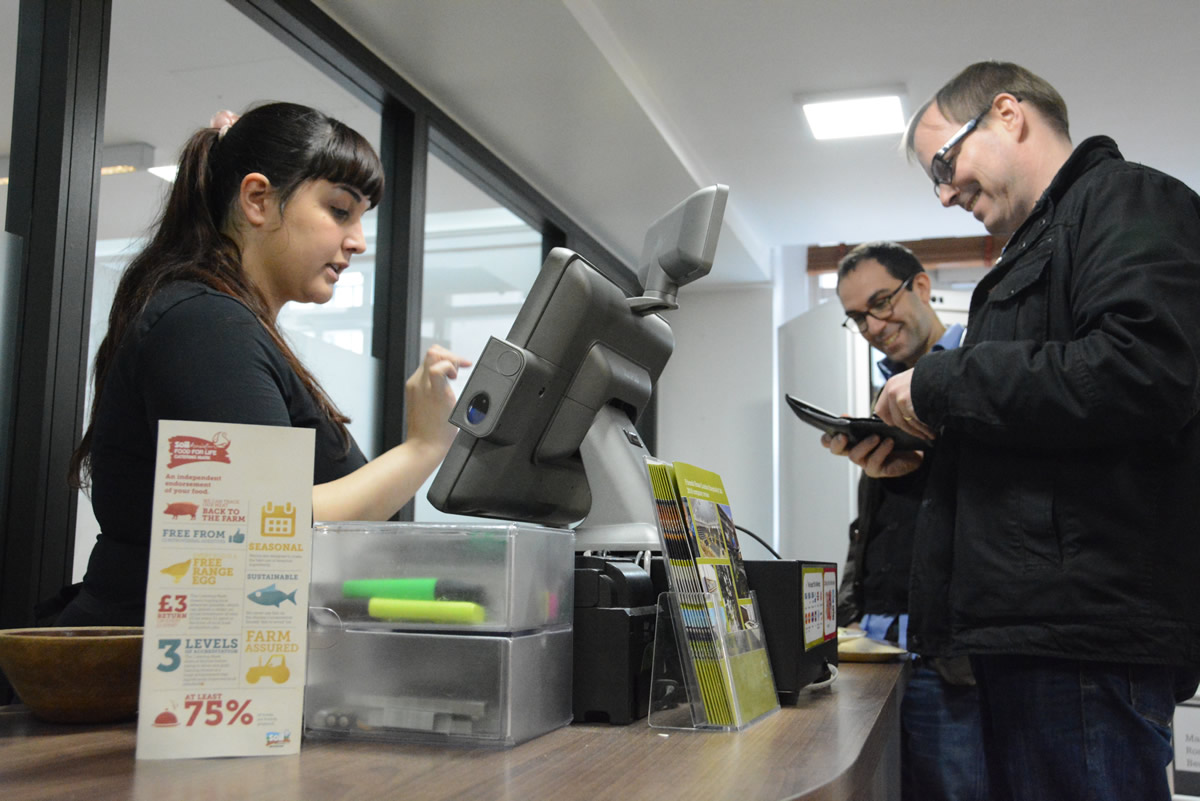Tea may have helped start a revolution, but a good 250 years later, something called Turkey Twizzlers kicked off a revolt. In 2005, British celebrity chef Jamie Oliver took a closer look at school meals in a tv series, discovering that Turkey Twizzlers – a spiral shaped concoction of fat, additives, preservatives, artificial flavorings and 30 percent reconstituted turkey meat–were among the highlights on the menu.
Oliver’s decision to ban Turkey Twizzlers at the school he worked with for the TV series and instead serve only meals cooked from scratch with fresh vegetables, salads, fruit and real meat caused even then Prime Minister Tony Blair to get involved. “That debate certainly got us thinking,” says Richard Watts from the British Soil Association which promotes organic food and agriculture in Britain and certifies organic standards. If attitudes at schools were to change, there needed to be a benchmark for what could be called a healthy meal – the idea for the Catering Mark Standard was born.

“It’s our obligation to give students good food.”
High above, the Soil Association logo sits between the silhouettes of farm animals and a quote by the university’s founder. “We used a cherry picker to get that up there” says Alastair Johns, head of retail and catering at the University of the Arts London. The student cafeteria is situated in the modern wing added to a refurbished 19th-century grain warehouse. It’s one of nine London campuses, all of which have a Gold Catering Mark. Providing the chance to have one healthy, freshly cooked meal a day to students who admit to rarely cooking themselves is Johns’ main goal. Having achieved the Gold Standard right from the start in 2014, the university also stands to gain financially: The Catering Mark counts toward the sustainability targets set by the British government, and is a marketing asset for students and the fees they pay.
Baxterstorey, an independent catering company, runs UAL’s student restaurants. “We serve 600 meals (a day) here,” says operations manager John Wood, as he points out the different food options, from dish of the day, to quirky chicken, a special vegetarian option, soup and a salad bar. Across the nine campuses, 3,000 Gold Standard meals daily are cooked, sold and eaten. A meat dish with sides is $5.96, a full vegetarian meal adds up to $5.39 – it’s hard to imagine anyone finding the same quality of food for less money anywhere else in central London.

No cakewalk
The Catering Mark system starts out with the Bronze Standard which requires that most of the food be freshly prepared on the premises and everything is free of harmful additives, trans fats and GM ingredients. The Silver and Gold Standards expand on this with a point system: every percent of organic and/or locally sourced produce is awarded points, as are a percent of fairly traded ingredients, MSC-labelled fish and free-range pork and poultry. The Silver Standard requires 150 points and at least five percent of ingredients have to be certified organic. Gold it takes 300+ points and a minimum of 15 percent organic produce (including one animal product). Sounds complicated? Since the Catering Mark started in 2008, the Soil Association has developed a range of tools to help chefs and caterers to make changes and achieve the standards – from handbooks addressing the specific needs of nurseries, schools and universities to hospitals, workplace cafes and residential care homes to a points calculator and lists of suppliers.
“The biggest challenge for us was meeting the organic target and making the menu rotation work financially,” says John Wood from Baxterstorey. To make sure that caterers stick to the rules an auditing team once a year checks the figures for a random month. The audit fee is £700 or about $1,000. If more than one unit needs to be certified, the fee is capped at £995 ($1,400).

Quakers do it quietly
About a 20 minute walk from the snazzy arts college is Friends’ House, the headquarters of Quakers in Britain. The basement restaurant serves about 100 meals to staff, and anyone who decides to come. On today’s menu are a pasta vegetable bake and two fish dishes, all with a side of vegetables and/or salad. Elisabeth stands behind the serving counter as she has for many years.
“What we didn’t have was a benchmark to work toward and that’s why we went for the Catering Mark Gold Standard.”
Did she notice a difference when the kitchen achieved the Gold Standard? “Yes,” she says, “we have so many organic vegetables in our meals, and they taste so much better. I now buy organic for the food I cook at home whenever I can.”
Sustainability is very much a Quaker concern, explains catering manager Jamie Scott. “What we didn’t have was a benchmark to work towards and that’s why we went for the Catering Mark Gold Standard.” He and the two chefs work with two wholesalers and two local organic farms. Sourcing enough local produce is a real challenge, says Scott. The team plans ahead, keeping in mind what the local farmers can supply in any given week. “In order to make use of leftovers we change the menu, and if we need an extra 221 pounds of courgettes, it’s possible that our farmers simply don’t have enough.”

Get them young…
The Snapdragons nursery in Bristol, about 120 miles west of London is getting toddlers excited about beetroot, parsnips and Brussels sprouts. The nursery caters for kids up to age five. “We don’t believe in giving them nursery food,” says Mary Llewellin, in charge of the Catering Mark at the nursery. “It’s when they are really little that habits of a lifetime are being formed. If they don’t start trying different foods at that age, when will they ever do it?” The menu is seasonal, locally-sourced and mainly organic. The food needs to be colorful and attractive, says Llewellin. Even Brussels sprouts are blanched just briefly to keep the vibrant green color, and that are served with chicken tagine, couscous and cranberries for sweetness. “We add parsnip to sauces or grate beetroot into a dish simply to get more vegetables into a meal, but we also have some bigger, identifiable chunks, otherwise the children wouldn’t be able to work out what it is they like,” says Llewellin. The nursery publishes the menu for the children in advance and provides the recipes to parents. Initially there were quite a few who were adamant that their children would not touch these dishes and the nursery decided to have a meal sampling evening at the beginning of each term. And even a very reluctant boy who came eating only white pasta after six months was happily eating everything on offer in the nursery–very much to the surprise of his mom.
Above and beyond
“Where things work really well there is usually one person in the organization who comes up with ideas way beyond what even the Gold Standard requires,” says Watts. One of them is Raquel Kneeves, the chef at the Snapdragons nursery. She is originally of Filipino, Chinese and Spanish ancestry. Kneeves came up with the idea of doing a monthly international food day: the kids will have Peking Duck with pancakes and homemade plum sauce to celebrate Chinese new year; there will be food to go with the Japanese spring blossom festival, Diwali, Holi and even to celebrate the 4th of July. And Kneeves cooks with the children and allows them to help with the vegetable and herb patch next to the nursery.
The Soil Association is working on getting large organizations like the National Trust (with four million members, maintaining public historical sites) to sign up its restaurant facilities. But the biggest impact lies in the educational sector. About 8,000 schools in Britain hold a Bronze, Silver or Gold Standard and serve more than one million meals a day. “We also look at how healthy eating is promoted,” says Watts. The Association works on getting more hospitals and care homes on board. The fact that the Catering Mark is considered best practice for procurement in the National Health Service and by the Department of Environment, Food and Rural Affairs (England’s version of the USDA) does help. But changing attitudes about food and cooking will take a lot more effort.
John Wood from the catering company Baxterstorey says, “Everything we offer has to compete with the many things students can do here in the middle of London!”
So better teach while they’re young to eat their sprouts.



















